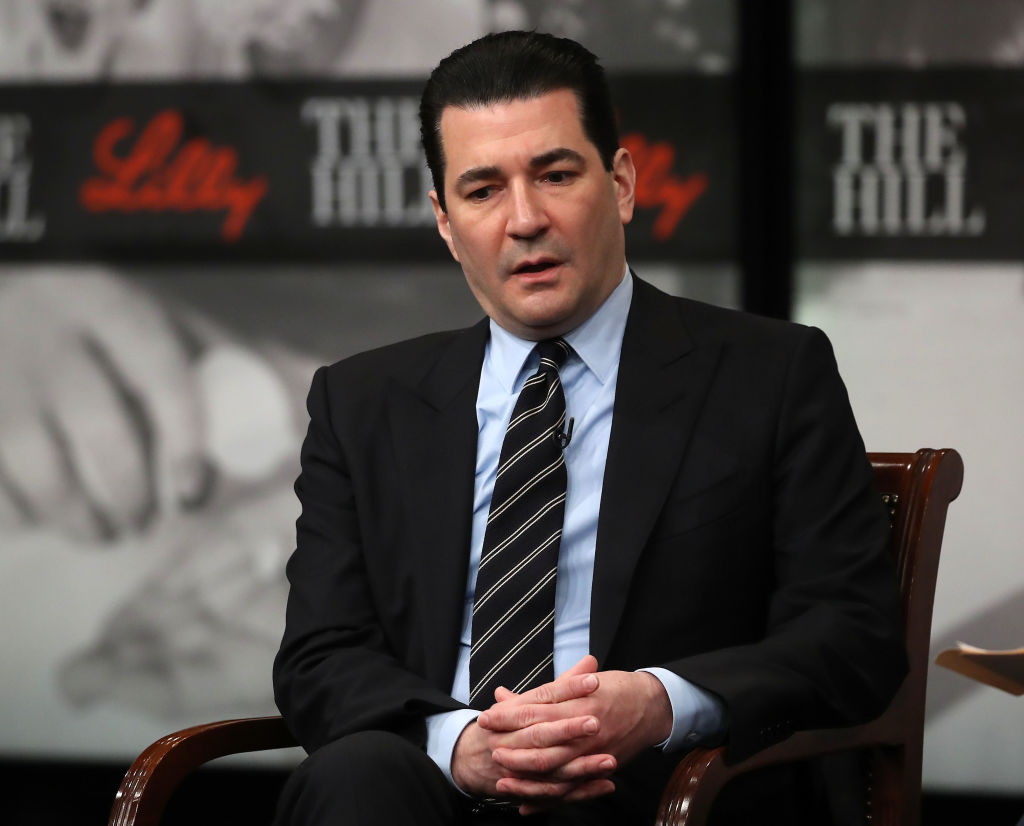Former FDA chief isn't buying Trump's main rationale for blocking tougher coronavirus vaccine standards


A free daily email with the biggest news stories of the day – and the best features from TheWeek.com
You are now subscribed
Your newsletter sign-up was successful
The White House has justified blocking new Food and Drug Administration guidelines for approving a COVID-19 vaccine by claiming "the pharmaceutical industry had objected to the tougher requirements," Politico reports, citing three people with knowledge of the situation. The guidelines are designed to ensure that any approved vaccine is safe and provides protection for more than a few weeks, but they also mean no vaccine will be approved before the Nov. 3 election, spoiling President Trump's frequent promises that a vaccine is imminent.
Citing objections from drugmakers is problematic in itself, given the frequent assertions from the Trump administration that science will be guiding the approval process. "In a normal procedure, the industry wouldn't be talking at all to the White House about this," John Moore, a professor of microbiology and immunology at Weill Cornell Medical College, told Politico. But current and former FDA officials, including recent commissioner Dr. Scott Gottlieb, also say the industry has actually been supportive of the new measures.
"The appearance of political interference in the vaccine authorization process has long worried FDA Commissioner Stephen Hahn and other agency officials," Politico reports. But "Trump's fixation on securing a vaccine within weeks has instead left the FDA with little expectation the new standards will ever be officially released, because publicizing the benchmarks would make it clear a vaccine authorization by Election Day is nearly impossible."
The Week
Escape your echo chamber. Get the facts behind the news, plus analysis from multiple perspectives.

Sign up for The Week's Free Newsletters
From our morning news briefing to a weekly Good News Newsletter, get the best of The Week delivered directly to your inbox.
From our morning news briefing to a weekly Good News Newsletter, get the best of The Week delivered directly to your inbox.
"It is abundantly clear Trump's political team is overruling its scientists in order to rush through the approval of a vaccine before the election," and it's equally likely a "clear majority" of voters won't trust any vaccine touted by Trump before Election Day, Jonathan Chait argues at New York. The big question is "will the government be able to develop public trust whenever it does produce what its scientists deem a safe and effective vaccine? We can only hope."
A free daily email with the biggest news stories of the day – and the best features from TheWeek.com
Peter has worked as a news and culture writer and editor at The Week since the site's launch in 2008. He covers politics, world affairs, religion and cultural currents. His journalism career began as a copy editor at a financial newswire and has included editorial positions at The New York Times Magazine, Facts on File, and Oregon State University.
-
 Corruption: The spy sheikh and the president
Corruption: The spy sheikh and the presidentFeature Trump is at the center of another scandal
-
 Putin’s shadow war
Putin’s shadow warFeature The Kremlin is waging a campaign of sabotage and subversion against Ukraine’s allies in the West
-
 Media: Why did Bezos gut ‘The Washington Post’?
Media: Why did Bezos gut ‘The Washington Post’?Feature Possibilities include to curry favor with Trump or to try to end financial losses
-
 Rubio boosts Orbán ahead of Hungary election
Rubio boosts Orbán ahead of Hungary electionSpeed Read Far-right nationalist Prime Minister Viktor Orbán is facing a tough re-election fight after many years in power
-
 Key Bangladesh election returns old guard to power
Key Bangladesh election returns old guard to powerSpeed Read The Bangladesh Nationalist Party claimed a decisive victory
-
 Epstein files topple law CEO, roil UK government
Epstein files topple law CEO, roil UK governmentSpeed Read Peter Mandelson, Britain’s former ambassador to the US, is caught up in the scandal
-
 Iran and US prepare to meet after skirmishes
Iran and US prepare to meet after skirmishesSpeed Read The incident comes amid heightened tensions in the Middle East
-
 EU and India clinch trade pact amid US tariff war
EU and India clinch trade pact amid US tariff warSpeed Read The agreement will slash tariffs on most goods over the next decade
-
 Israel retrieves final hostage’s body from Gaza
Israel retrieves final hostage’s body from GazaSpeed Read The 24-year-old police officer was killed during the initial Hamas attack
-
 China’s Xi targets top general in growing purge
China’s Xi targets top general in growing purgeSpeed Read Zhang Youxia is being investigated over ‘grave violations’ of the law
-
 Panama and Canada are negotiating over a crucial copper mine
Panama and Canada are negotiating over a crucial copper mineIn the Spotlight Panama is set to make a final decision on the mine this summer
